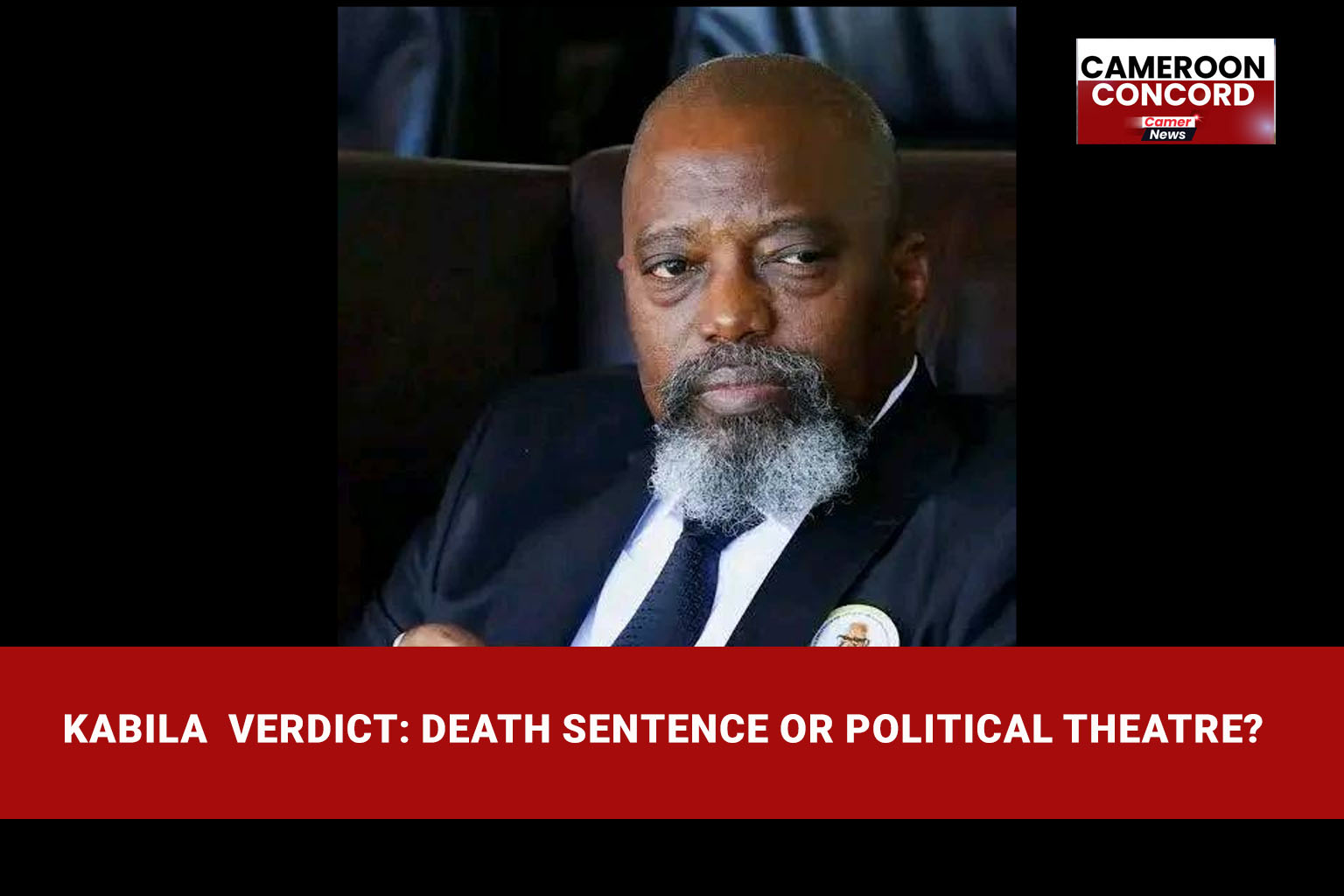The verdict marks the first time in Congolese history that a former head of state has been condemned to death, triggering a storm of political reactions and raising fears of further instability in a country already torn by conflict in the east.
A lightning trial
Kabila, who ruled the DRC from 2001 to 2019, was accused of “intelligence with Rwanda” and legitimizing the armed actions of AFC/M23. His parliamentary immunity as lifetime senator had been lifted earlier this year, clearing the way for a treason trial that began in July.
Critics, however, decried the proceedings as rushed and politically motivated. Kikaya Bin Karubi, his long-time adviser, blasted the judgment as “nothing but gossip from social media and Kinshasa’s streets,” insisting that no credible evidence linked Kabila to the rebels.
“The only accusation is that he stayed in Goma and Bukavu. Instead of condemning him, the Republic should honor him for reunifying Congo, rebuilding state institutions, and ensuring peaceful transitions of power,” Kikaya said.
Opposition silenced?
Observers say the trial reflects a broader crackdown under President Félix Tshisekedi, who has tightened his grip on power. For many Congolese, the trial was less about justice and more about eliminating an opponent still capable of rallying political support.
“This is a speedy nonsense trial meant to silence dissent,” one political analyst told Cameroon Concord. “By condemning Kabila, Tshisekedi sends a message to anyone thinking of challenging his rule.”
Professor Bob Kabamba warned that the sentence could radicalize Kabila’s supporters: “The only path left to Kabila is armed struggle. The M23 gained what the political opposition could not — direct negotiations with government in Doha. For Kabila, the lesson is that only force is respected.”
Bertrand Bisimwa, a rebel leader, echoed that view: “Condemning Kabila while negotiating with M23 shows the hypocrisy of Kinshasa. The world is watching.”
Online outrage
Social media erupted after the verdict, with comments ranging from despair to ridicule:
-
“The DRC is one of the most comical countries in the world,” wrote Moussa Monènembo.
-
“A death sentence without proof — pure theater,” said Marcossis Tshita.
-
“Kabila remains the best president the DRC ever had,” Erick Ndala commented.
-
“This is a message to all African presidents: never leave power early,” noted Eric Tady.
-
Others asked bluntly: “Who will arrest him? He moves freely in Goma.”
A dangerous precedent
By condemning Kabila, Kinshasa risks deepening divides in a nation already at breaking point. Supporters view him as a unifier who rebuilt the state after the Second Congo War, while opponents accuse him of corruption and backroom deals with Rwanda.
What is clear is that the Tshisekedi regime has opened a dangerous chapter. Rather than closing the wounds of the past, the trial threatens to plunge the DRC into a new cycle of mistrust, rebellion, and instability.
For many, the verdict is less about justice than about power — and it is Congo’s fragile democracy that may pay the ultimate price.













